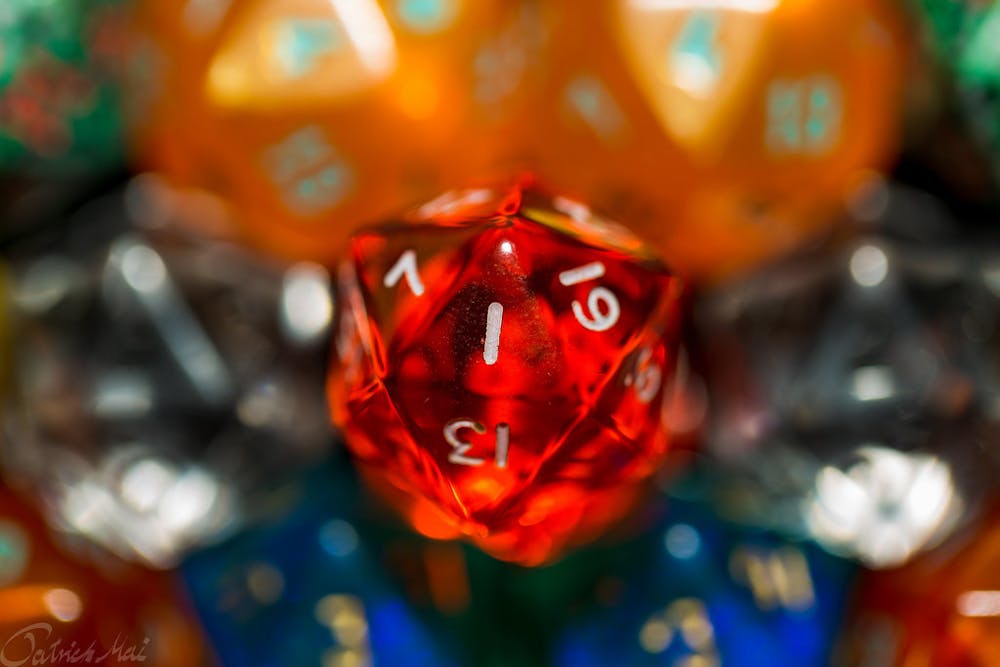Can you ever be too lucky? Is there such a thing as having too much luck? Before reading the novel With a Little Luck by Marissa Meyer, I probably would have answered “no.” Why wouldn’t you want to wake up on the right side of the bed every morning? Why wouldn’t you want to avoid stepping in a mound of dog poop on the sidewalk or splattering tomato sauce on a white shirt? Why wouldn’t you want to always be lucky?
If you, like me, went through a YA fantasy phase, you might recognize Meyer’s name from her popular series The Lunar Chronicles. With a Little Luck is Meyer’s latest young adult novel, released on Feb. 13. A bit of a departure from the dystopian fairy tale retellings in The Lunar Chronicles, With a Little Luck is a high school romantic comedy with a hint of magic thrown in.
The novel is told from the perspective of Jude, an artistic high schooler reluctant to share his art, apply to art school or approach his long-time crush, Maya. When he happens upon a 20-sided die that magically grants him luck, Jude’s life begins to change: His art is published in a magazine, and he finally asks Maya out on a date. However, things get complicated when Jude discovers that being lucky isn’t all it’s cracked up to be, especially when he discovers his emerging feelings for Ari, his best friend.
When I first started reading this book, I was slow to get into it. Admittedly, it had been a while since I’d read anything that wasn’t a textbook or a required reading for a class, much less a young adult book. It took me a second to adjust to a narrative voice that was so awkward and angsty and characteristic of a high schooler, which feels so far away and removed from where I am now in life.
However, after wading through the first few chapters, I found myself getting pulled into Jude’s sense of humor. It was quirky and a little nerdy (I wish I picked up on more of the Dungeons & Dragons references) but also really endearing. I may not have always fully understood his little quips, but they helped bring Jude’s character to life. A great example of this was: “We all tense and look at each other like people do when they suspect they may have been assimilated into the Borg. Pru looks duly freaked.” I don’t know what “the Borg” is, and I don’t know how you can be assimilated into it, but this quote still made me laugh when I encountered it.
The occasional breaks in the fourth wall sprinkled throughout the story were not my favorite. This comes down to personal preference, but the narrative style is already very close and in the headspace of Jude. Breaking the fourth wall felt unnecessary and a bit jarring, often pulling me out of the story. I read to immerse myself in the world of the characters, not to be addressed or called out by them at random, unsuspecting moments.
The main love story, though, was adorable. Once Jude gets his act together and realizes he actually likes Ari, instead of Maya, I loved it. While the pining friends-to-lovers trope did at times feel derivative of other romantic comedies (like Love, Rosie or One Day), I found I didn’t really mind some of the lack of originality because it was still really cute and wholesome. I also love some jealousy between the romantic leads thrown in to spice things up, and Meyer pulls this subplot off really well.
Finally, to return to the question I posed at the beginning of this article: Can we ever have too much luck? Meyer’s answer to this question in With a Little Luck was, to me, the best part of the novel. Meyer doesn’t moralize. She doesn’t deliver the literary equivalent of a disappointed look or a disapproving tsk, tsk. She doesn’t write a monologue about how if you’re always lucky, you stop appreciating it, or some equally cliché theme like “slow and steady” or “do unto others.”
No. To Meyer, the answer is simple. Yes, you can be too lucky, because we don’t always know what we want; because we tend to fixate on the wrong things and the wrong people; and because sometimes a little resistance, getting a little unlucky, puts us onto the right path — the path that we were always meant to be on in the first place.





